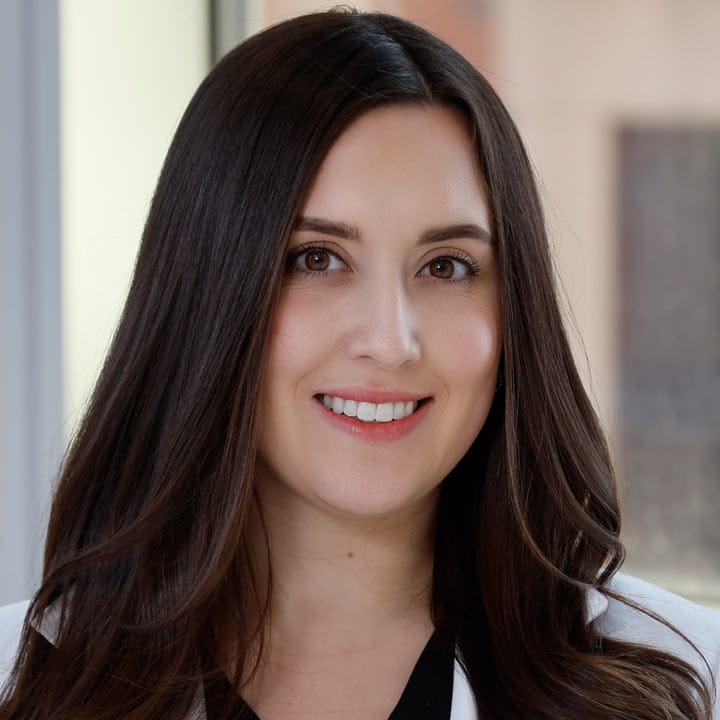
Alison Todd, APRN-CNP
- Plastic Surgery, Nurse Practitioner
CoolSculpting is a brand name for cryolipolisis, or fat freezing — a nonsurgical fat-removal technology. It offers a noninvasive way to reduce stubborn bulges of fat that persist after you’ve tried dieting and exercise.
CoolSculpting treats localized areas of fat on the waist, back or other areas. Doctors use a handheld device that grips and cools targeted areas of fat beneath your skin. At about 4 degrees Celsius, fat cells begin to crystallize, break down and eventually die before they’re naturally removed by the body. The treatment affects fat cells exclusively and doesn’t harm other cells in the area.
The Ohio State University Wexner Medical Center aesthetics team have high-level skills in performing CoolSculpting and a wide array of nonsurgical procedures.
Despite healthy eating habits and a regular exercise regime, you may have stubborn areas of fat that won’t go away. In some instances, genetics play a role in where fat tends to settle. Some people can’t get rid of chin fat, unwanted fat that settles around the belly, or in fatty flanks referred to as “love handles,” “muffin top” or back fat.
CoolSculpting targets persistent, problematic fat in localized areas, such as:
To treat fat over larger areas of your body, liposuction or other body contouring procedures may be better options to consider.
CoolSculpting is not a weight-loss procedure. Consult Ohio State’s weight management specialists for effective, nonsurgical weight management.
Preparing for CoolSculpting may include the following steps as directed by your aesthetics provider:
CoolSculpting can be done at one of our outpatient care locations in Columbus, Ohio. Time required for the procedure can range from 30 minutes to two hours depending on areas treated and treatment goals.
Your provider will apply a gel to the area to be treated. They’ll then gather fatty tissue, using the CoolSculpting adaptor, a vacuum-like suction attachment. You may feel a tugging sensation and temporary pinching, numbness or discomfort in the area.
Once fatty tissues are gathered, the device cools the area at a temperature of about 4 degrees Celsius. This causes fat cells to break down and eventually dissolve without harming other cells in this area.
Any discomfort usually goes away once the area begins to feel cool and numb. During your procedure, you can listen to music, watch a movie or just relax and rest your eyes.
Depending on the area of the body being treated, your doctor may recommend multiple CoolSculpting cycles (or sessions) over four to six weeks. Most people require at least two cycles per treatment area.
You may experience some temporary numbness or redness and swelling in areas treated. You should be able to return to work or other routine schedules with no downtime.
Results after CoolSculpting aren’t noticeable right away. You’ll begin to see a difference within two to three weeks as your body continues to get rid of disintegrated fat cells. Results are permanent if you steadily maintain a balanced diet and a healthy exercise routine to avoid weight gain.
A good candidate for CoolSculpting would have the following:
You should not have CoolSculpting if you have these or other conditions as discussed by your provider:
The risks of CoolSculpting therapy vary depending on individual condition and the number and extent of areas treated. Our aesthetic team will evaluate your condition, medical history and treatment goals to determine whether it’s an option for you. Potential risks include:
CoolSculpting has a low risk of complications when performed by highly qualified providers like those at Ohio State. During your office visits, your provider will discuss your condition, goals and any possible risks.
CoolSculpting is a nonsurgical, minimally invasive option for small areas of stubborn fat. Liposuction is a surgical fat removal procedure that is suitable for treatment of both small and larger areas of fat.
You can expect minimal to no pain during this treatment. The most reported treatment-associated symptoms include temporary cold sensation, bruising, swelling, numbness, tingling, aching or cramping.
Under the chin, upper arms, abdomen, flanks, back, under the buttocks and thighs.
As a noninvasive, nonsurgical treatment option, there is no associated downtime with this procedure.
The technology permanently removes fat cells in the treated area. However, if you gain weight after treatment you may gain fat back in a previously treated area.
There is a possibility of developing a condition called paradoxical adipose hyperplasia (PAH). PAH is a rare side effect that results in the overgrowth of fatty tissue in the targeted area(s). If this occurs, CoolSculpting has committed to paying for liposuction to treat this condition.
You may notice some improvements soon after with most results being visible three to four months after your treatment.


Don’t have MyChart? Create an account